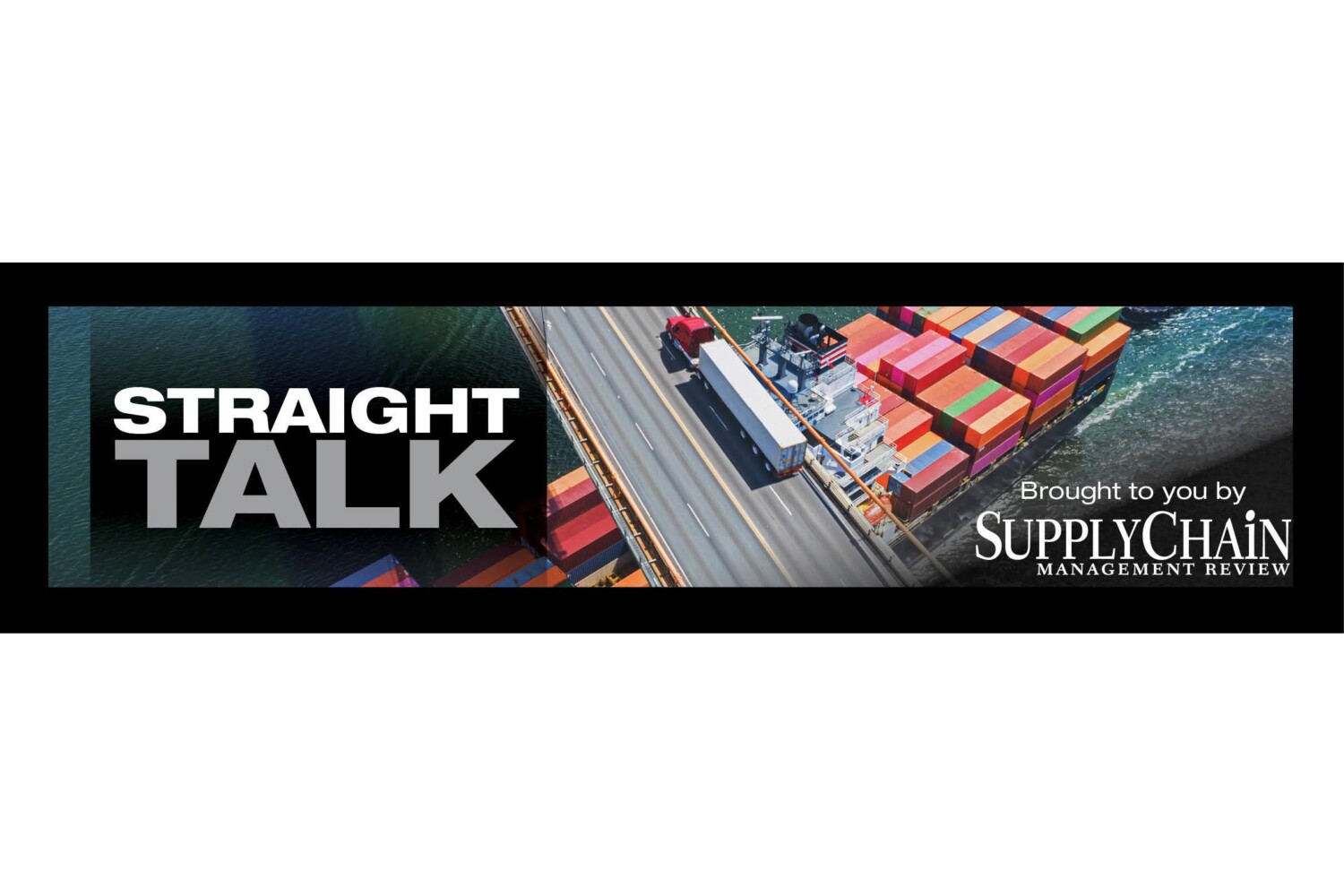|
Straight Talk with Brian Straight • November 23, 2025
|
|
|
|
Hello, and welcome to this week’s edition of Straight Talk. Inside, we discuss:
|
|
If this was forwarded to you and you wish to receive it each Sunday morning in your email, please go here to sign up for SCMR newsletters.
|
|
|
|
 |
|
(Photo: Getty Images)
|
|
I don’t know how many people caught this post about Fireflies.ai on LinkedIn this past week, but if you haven’t, it’s really one you should read, and one that should have received more publicity in the media than it has.
Sam Udotong, co-founder and CTO of Fireflies, an AI-powered meeting notetaking app, admitted that in the early days the company wasn’t AI at all, but rather a human to take meeting notes.
“We told our customers there’s an ‘AI that’ll join a meeting.’ In reality it was just me and my co-founder calling in to the meeting [and] sitting there silently and taking notes by hand,” he wrote. “When customers scheduled a meeting, we’d manually dial in as ‘Fred from Fireflies.ai.’ We’d sit there silently, take detailed notes, and send them 10 minutes later. After taking notes for 100+ meetings (and falling asleep in many), we were finally able to make enough money to pay the $750/month rent for a tiny SF living room. That was the point when we said let’s stop and automate everything, in 2017.”
Udotong explained this approach as a way to survive. In his post (you can read the full post here), he explained why they did this.
“We charged $100/month for an AI that was really just two guys surviving on pizza. We scaled Fireflies to a $1B valuation after 6 failures from our original crypto food delivery idea. Nothing motivates you more than the pressure of living month to month with no safety net.
“Before I explain how 2 broke guys validated a $1B idea, you need to understand we were couch surfing while desperately chasing our entrepreneurial dreams. An AI notetaker was our last hope after 6 ideas our friends claimed were genius. The best way to validate your business idea is by becoming the product yourself.”
So, in the early days of an AI meeting notetaker, companies were paying $100/month for two guys eating pizza on a couch to sit in on their (proprietary) meetings and take notes.
This summer, Fireflies.ai, which claims that 75% of the Fortune 500 use its services, announced a tender offer valuing the company at over $1 billion. That is a lot of pizza. In the release announcing the valuation in June, they pointed out that the company has been profitable since 2023 and has sustained triple-digit year-over-year growth without raising capital since 2021. Maybe there wasn’t as much pizza as I thought.
With all this said, I believe the case of Fireflies.ai offers a cautionary tale for those in the supply chain, and it’s a lesson that needs to be heeded.
|
|
The chase for the almighty dollar is powerful
|
|
High valuations and rapid growth are hallmarks of startups. Many companies, including your own likely, work with startups regularly. Innovation comes from many locations, and startups and Silicon Valley in particular are hotbeds for innovation in the supply chain space. But does that mean you should trust every startup that says it has a solution to your problem? In the search for a solution, we sometimes become blind to reality. Does the fact that Fireflies scaled fast and achieved a billion-dollar valuation make what they did right? No. It doesn’t erase the fact that early customers were led to believe they were buying an AI solution when in fact it was human labor. This matters because it raises questions of truth, transparency and trust. In supply chain, these are non-negotiables.
|
|
Supply chain can’t allow supplier opacity
|
|
The supply chain industry is under pressure to build visibility and trust across tiers, and as tech proliferates (especially AI) the risk of misrepresentation grows. If we allow suppliers or tech vendors to claim capabilities they don’t have, we invite risk. Was what Fireflies.ai did fraud? Some will argue yes because there was a deliberate misrepresentation (I fall into this category). Others may call it “scrappy startup behavior.” The reactions online have been mixed. But from a large-scale supply chain vantage point, the label matters less than the impact: unvetted (or under-vetted) suppliers, and reputational hazards, left unchecked, will cause harm to your business.
|
|
Does it matter what your suppliers do?
|
|
In the Fireflies.ai case, the key question is whether early customers knew that the notetaking was human-generated rather than AI-generated. More importantly, though, is if they knew, did they care? Sometimes in business, our quest for the solution excuses the path to achieving that solution. That attitude is risky. You might contract with a supplier who claims automation, or ESG-compliance, or advanced data capabilities, but behind the scenes the claims are not what they seem. How much risk does that open up for your organization?
For supply chain leaders, the question isn’t just what the supplier supplies, but how. If you only care about the output, you may overlook hidden risks in the process. And those risks carry consequences.
|
|
Risks not worth taking
|
|
Transparency, ethical sourcing, governance and regulation compliance aren’t optional for supply chains. When a supplier violates trust, misleads stakeholders or breaks regulatory commitments, the client company may suffer reputational damage, regulatory penalties, or loss of partner confidence. In sectors such as CPG and life sciences, for instance, that lack of transparency can have deadly consequences. A lack of visibility into a supplier’s claims undermines resilience and trust.
You may be saying that Fireflies.ai was a notetaker app and therefore what they did was not that serious or harmful. And that may be very true, but the next time it may not be as harmless.
Companies that build habits where vetting and transparency are “nice to do” are opening themselves up to more risk.
I recently recorded a podcast episode with Dave Rusher of risk-compliance firm Aravo on the integration of AI into risk management operations. His comment is relevant here:
“That old adage about you can’t outsource risk, it applies here, right?,” Rusher told me. “I mean, you can’t just point to the AI and say, my agent AI bot did this. That was their decision.” Rusher’s point applies to this conversation as well. Given the technology and information available today, companies can no longer pass the buck to a supplier when something goes wrong. A good lawyer will argue “they should have known.”
|
|
The final word
|
|
It’s easy to dismiss the Fireflies.ai story as a non-story. For a large company, maybe $100/month to have someone take notes at your meetings isn’t a big deal (it’s certainly cheaper than hiring a notetaker), but like anything else, it is about the process. It is the process that so often trips up companies as they search for a solution to a pain point. If you are focused only on the end result, you open yourself up to risk.
The companies that hired Fireflies.ai in the early days were interested in the end result. But what if Fireflies.ai wasn’t a note-taking company? What if it was a safety-compliance firm and something went wrong in one of your factories?
The Fireflies story isn’t just a startup anecdote; it’s a warning sign for every supply chain leader: when your partner claims X, you need to verify it. Your supply chain isn’t just your direct operations, it’s everything you rely on, and everything your partners claim. Don’t let the promise of shiny tech distract from the need to validate how the work is done. Because if your supplier’s foundation is built on a human sitting in a meeting pretending to be an AI bot, what else aren’t you seeing?
|
|
Back to the 90s
|
 |
|
|
|
(Photo: Getty Images)
|
|
Andre Quinn-Barabanov, vice president and senior analyst at Moody’s, said the current shift in global supply chains, with a focus on reshoring and nearshoring, resembles the 1990s globalization trend. During that time, production moved overseas rapidly and now the tide has turned, with companies trying to reverse that shift. “It’s easy to make announcements about new facilities,” Quinn-Barabanov told Supply Chain 247 editor Andy Gray. “What’s harder is getting consistent output and stable supply once those plants start running.” You can read Quinn-Barabanov’s full conversation, which delves into the reasons for this shift and what supply chain leaders can expect, with Gray here.
|
|
Discriminating robots
|
 |
|
(Photo: Getty Images)
|
|
|
|
|
A new research article published in the Journal of Social Robotics raises concerns that large language models could generate harmful, discriminatory or unsafe behaviors in real-world robotic operations. The research, “LLM-Driven Robots Risk Enacting Discrimination, Violence, and Unlawful Actions” and published in the October issue of the publication, suggests LLMs are “currently unsafe for people across a diverse range of protected identity characteristics, including, but not limited to, race, gender, disability status, nationality, religion, and their intersections.” The research centers on LLMs and human-machine interactions, particularly humanoids. This underscores the importance of training your LLMs, regardless of their use, not only in what they should do, but also what they shouldn’t do. You can read the full research here.
|
|
What I read this week
|
|
Companies are moving supply chains out of China, but they aren’t necessarily coming to the U.S. as Mexico remains the top destination. … MIT research looks at how organizations can successfully localize operations and build more resilient supply chains closer to home. … If it seems like tariffs are changing daily, you are not far off. New research found a new tariff announcement has occurred every four days this year. … According to respondents to a Breakthrough peak season shipping survey, nearly half said AI has played a crucial role in keeping the shipping season on track. … Four in five cargo owners across Europe expect supply chain disruptions to last at least another two years, according to a Maersk survey. … Agentic AI holds a lot of promise, but some companies remain cautious about implementing it into their supply chains as they balance its benefits with customer trust concerns.
|
|
|
|
|
Thank you for reading, Brian
|
|
|
Brian Straight is the Editor in Chief of Supply Chain Management Review. He has covered trucking, logistics and the broader supply chain for more than 15 years.
|
|
|
|
|


